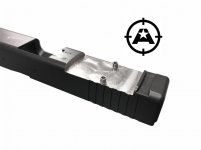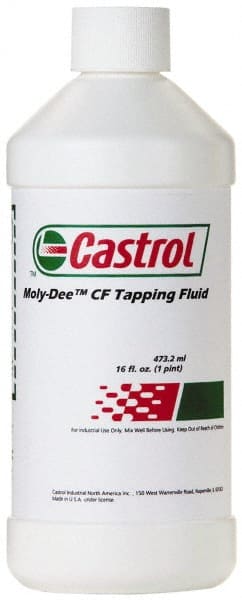Red_SC
Aluminum
- Joined
- Dec 22, 2011
- Location
- Darlington, SC
I’ve been having an issue tapping a 6-32 hole in Glock slides for mounting RMR red dot sights. I’m not sure the hardness of the steel, everyone quotes the melonite hardness but not the hardness of the steel underneath after the melonite has been machined off. It feels pretty hard when tapping by hand, however.
I’m drilling the holes 7/64 for a 64% thread depth. I’d like to tap on the CNC, but every attempt so far has broken the tap. I’ve used several brands of HSS taps; I haven’t tried carbide yet because I wouldn’t be able to mill out a broken tap. I don’t think it’s a good candidate for roll tapping because of the hardness.
So far I’ve been using a tap guide in a Bridgeport to tap them very carefully by hand, starting with a taper tap and finishing with a bottoming tap. That works but is slow, if anyone has a tap or process that might work better I’d appreciate the input.
I’m drilling the holes 7/64 for a 64% thread depth. I’d like to tap on the CNC, but every attempt so far has broken the tap. I’ve used several brands of HSS taps; I haven’t tried carbide yet because I wouldn’t be able to mill out a broken tap. I don’t think it’s a good candidate for roll tapping because of the hardness.
So far I’ve been using a tap guide in a Bridgeport to tap them very carefully by hand, starting with a taper tap and finishing with a bottoming tap. That works but is slow, if anyone has a tap or process that might work better I’d appreciate the input.





